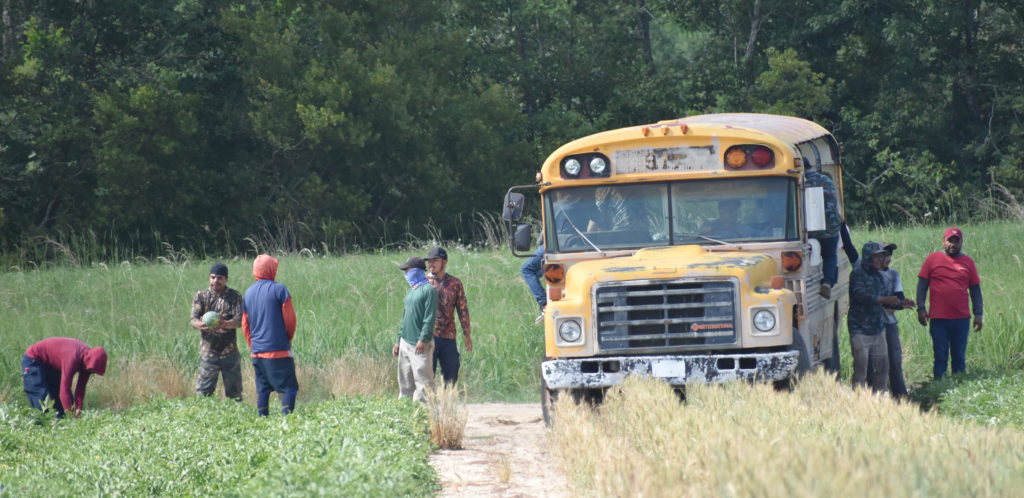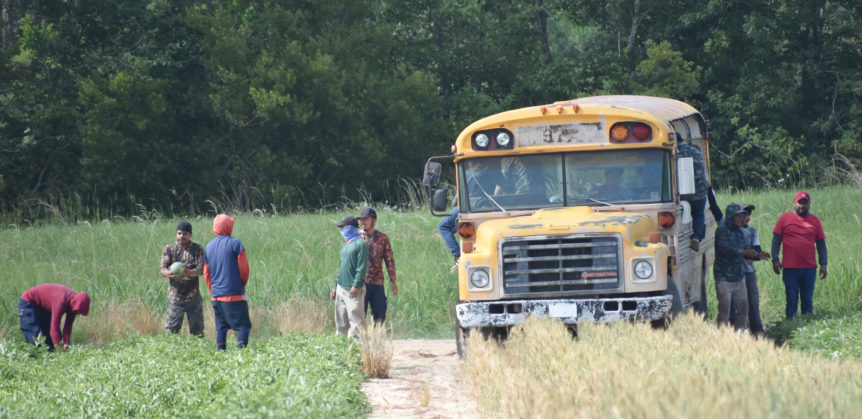
By Frank Giles
There has been a lot of activity in the past couple of years surrounding the H-2A visa program for agricultural workers. The wage-rate has skyrocketed, and a new final rule, titled Improving Protection for Workers in Temporary Agricultural Employment in the United States, is causing more regulatory heartburn for growers.
The rule was published in June and immediately drew criticism from farm groups as another step toward making the program unusable. Of particular concern is language that would allow temporary farmworkers to unionize.
According to the National Coalition of Agricultural Employers (NCAE), the final rule would strip farmers of the right to due process afforded to them by the U.S. Constitution. On Aug. 29, the U.S. District Court for the Southern District of Georgia issued a preliminary injunction in the case of Kansas, et al. vs. U.S. Department of Labor, which prohibited the rule from taking effect in Georgia, Kansas, South Carolina, Arkansas, Florida, Idaho, Indiana, Iowa, Louisiana, Missouri, Montana, Nebraska, North Dakota, Oklahoma, Tennessee, Texas, Virginia, as well as for certain individuals and entities. This left farmers and ranchers with operations in two-thirds of states not covered by the injunction vulnerable to substantive provisions of the rule.
The ruling came down after a federal court in Brunswick, Georgia, heard oral arguments in Georgia Fruit & Vegetable Growers Association’s (GFVGA) and Miles Berry Farm’s lawsuit against the Department of Labor. The case was brought by Southeastern Legal Foundation on behalf of GFVGA and Miles Berry Farm, together with a coalition of seventeen states. GFVGA and Miles Berry Farm challenged the Department of Labor’s new rule that will force farms to allow temporary foreign farmworkers to unionize, a right Congress has not even granted to American farm workers.
In the injunction, the court explains that “[a]gencies may play the sorcerer’s apprentice but not the sorcerer himself. The [Rule] is an attempt by the [Department] to play the sorcerer. The [Department] may assist Congress but may not become Congress.”
In other words, the Department of Labor is creating a new law, which it does not have the authority to do. The Department of Labor responded to the injunction with a statement on its website on Sept. 10 that the agency would begin processing applications for H-2A labor for employers not covered by the injunction on Sept. 12 in accordance with the final rule. It announced it would begin processing applications for states covered by the injunction in accordance with the regulations prior to the new rule. So, now growers are dealing with two sets of rules in the application process.
“Rather than taking heed of the judge’s wise words and withdraw the rule in its entirety,” stated Michael Marsh, president and chief operating officer of NCAE, “the Department of Labor decided to further complicate matters for farm and ranch families by creating a bifurcated application process at the whim of the Acting Secretary’s pen rather than through true notice-and-comment rulemaking. This is something the Acting Secretary and her department know they cannot do.
“America’s hardworking farmers and ranchers are deeply troubled by the department’s lack of regard for the important work they do each day ensuring that Americans have food to enjoy on their tables.”
Expect more legal wrangling to come, but at some point, Congress and policymakers must decide whether or not growing our own food and fiber in this country is important. If so, we must enact laws and regulations that make it easier to farm, not harder.










